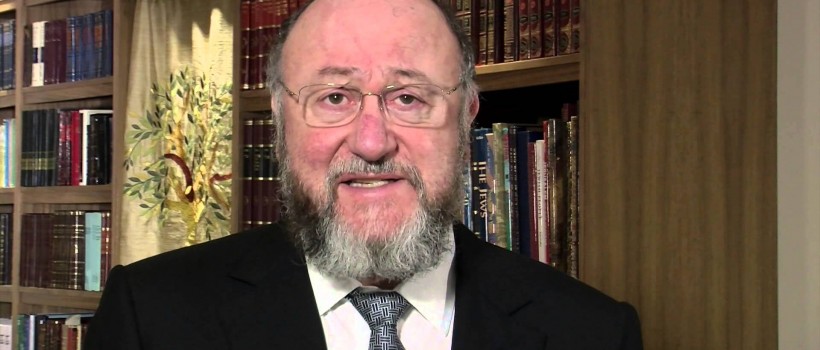D’var Torah: Parashat Vayikra

In this week’s sedra we bear witness to Moshe Rabbeinu’s great humility as he received the words of the Torah from God, yet we know that in his capacity as a leader, he displayed no such reticence. To regard this comparative confidence as arrogance however, is to misconstrue the very concept of humility, teaches the Chief Rabbi. Read the transcription below:
Vayikra is both the first word of our parasha, and of the third book of the Torah. Intriguingly, the concluding letter of Vayikra is a small א. According to our tradition, when Moshe on Mount Sinai heard the words of the Torah from Hashem, and Hashem told him the words ‘Vayikra el Moshe‘, indicating that God had called out to Moshe. Moshe in his humility didn’t want to write that down.
And so he wrote a small א, because without the א, the words read ‘Vayikar el Moshe’, meaning God just happened to bump into Moshe. This is one of the many passages in the Torah through which we recognise the deep humility of Moshe Rabbeinu. Indeed, the Torah itself says ‘Moshe anav oomicol Adam’ – Moshe was more humble than any other person then, and throughout all time.
‘Where was his humility, when he used the full stamp of his authority?’
Yet you could ask as follows: where was Moshe’s humility when he stood before Pharaoh and his voice thundered when he declared ‘Hashem says ‘Let my people go!” Where was his humility, when he used the full stamp of his authority in order to quash the Korach Rebellion? Where was his humility, when he proudly stood on Mount Sinai to receive The Ten Commandments from Hashem?
‘Humility doesn’t mean that the humble person lacks self-confidence’
One only has a problem with these questions if one misunderstands the concept of humility. You see, humility doesn’t mean that the humble person lacks self-confidence or feels that he or she is absolutely useless. Rather the truly humble person ascribes any talents and abilities they may have to the blessings that the Almighty has endowed them with. They lack all sense of arrogance, and they thank the Almighty for giving them that potential.
When a person complements a truly humble person, he or she doesn’t think in their minds ‘Ah they’ve got it right, I am the greatest’ with full arrogance. Rather they say ‘thank you very much, Baruch Hashem, it’s thanks to the Almighty’ that I have certain talents and abilities; it’s His greatness which has enabled me to fulfill some of my potential.
That is true humility, and therefore humility should never be a barrier to success and to remarkable achievement. We learn this all from Moshe Rabbeinu, one person, at one and the same time, was our greatest achiever, and also the most humble person who has ever lived. Shabbat Shalom.

